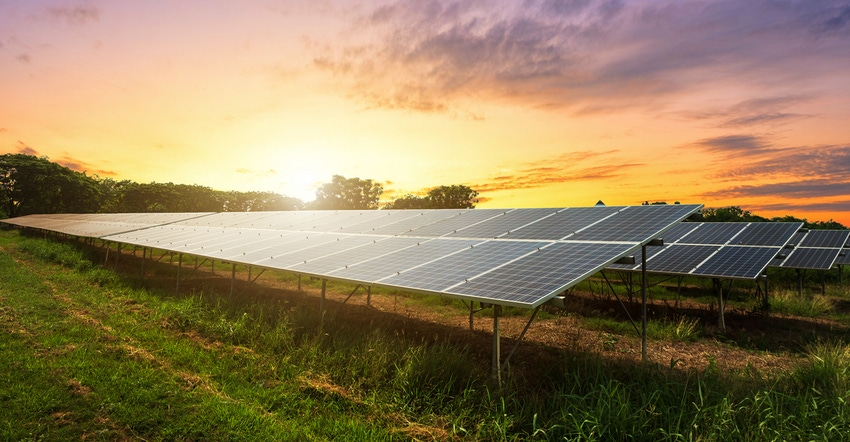June 23, 2021

In the past few months, I have received several questions from Iowa landowners in the process of evaluating lease and easement opportunities covering a wide array of areas, including wind, solar or transmission line projects. Understanding and reviewing these agreements is essential to protecting your farm business and business successors, as these agreements can be quite lengthy and complex.
With talk in the Biden administration of increasing investments in renewable energy, it is a prime time to discuss the key terms found in these agreements, and how to evaluate the potential income opportunity they may provide.
In past columns we have discussed evaluating lease and easement opportunities involving wind energy, crude oil pipelines and electric transmission lines. It is a relatively recent development that companies are seeking easements and leases for solar (photovoltaic) projects in Iowa. Additionally, many electric utilities are updating transmission lines or adding transmission capacity in developing areas, affecting farmland surrounding these areas.
Of course, many questions arise for landowners approached with leases and easements relating to these installations. Remember, a lease is really just a contract where the party owning land conveys a portion of land to another party to use for a specific time, usually for a specific periodic payment. An easement is a similar concept, but is a grant of a right given to another to use land you own. For instance, utility companies generally request easements for utility line installations and will record those agreements.
Questions to ask
For landowners affected by the construction of these projects, though, the biggest question is: What rights and legal responsibilities will they assume or give away if they enter into an easement or lease agreement with the company constructing the facility? As with any document affecting your property rights, asking the right questions and having the document reviewed by your attorney is key to making the best decision. You may also want to attend public informational meetings to gather information and understand the process.
There are some important questions for landowners to ask, including, but not limited to: What is the term of the easement? How many years? Will the entire easement be recorded at the county recorder's office, or just a memorandum of the agreement? Is the agreement assignable? (Can the company assign its rights to another company?) What is the payment, and how is it structured? Am I protected from liability as a landowner, if there is a problem with the installation? How will my farming operation be impacted, and for how many years?
What access rights, and through what routes, does the company have? In the event of a legal dispute, is there a mandatory arbitration or mediation clause? Will my land be returned to its former condition after construction and installation, and what is the process for removing and replacing topsoil?
Whether it is wind projects, transmission line projects, solar projects or other legal agreements, asking the right questions and consulting with experts and your attorney is key to understanding the rights and responsibilities you may assume by entering into a long-term easement or lease arrangement.
What about eminent domain or condemnation if we can't agree? The power of eminent domain or condemnation may be used to condemn private property for public or private ownership that serves a public purpose or public use. This is sometimes referred to as a "taking" of private property.
The terms generate a lot of discussion from a political standpoint, but in a nutshell, the power of eminent domain or condemnation is used to accomplish a public project that benefits a public purpose. The use of these powers is usually a rare circumstance that might occur if a utility company, for instance, cannot secure enough voluntary agreement from landowners to ensure completion of the project.
For instance, an electric utility may need to file an application for condemnation to upgrade an utility line in an area where there is increasing population. There are legal standards that govern this process. The Fifth Amendment of the U.S. Constitution and Article 1, Section 19 of the Iowa Constitution expressly prohibit any taking of private property for public use without just compensation. Essentially, the standard is that a taking must be "rationally related to a conceivable public purpose" for the eminent domain or condemnation to be approved.
Looking ahead to farm lease termination time
It is that time of year, once again, to review lease terms and look to the next crop year. Remember, if a one-year, year-to-year lease or a multiyear lease whose term ends on March 1, 2022, is not terminated prior to Sept. 1, 2021, the lease continues under the same terms and conditions for the next year — unless both parties choose to renegotiate the terms at a later time or agree in writing to a termination. As with any contractual agreement, the terms of a farm lease are always negotiable if both parties consent to the change in the terms.
Herbold-Swalwell is an attorney with Brick-Gentry in Des Moines, Iowa. Email [email protected].
About the Author(s)
You May Also Like






